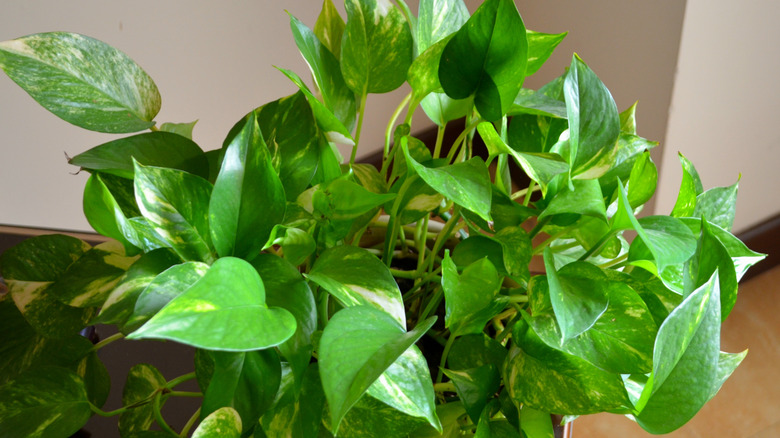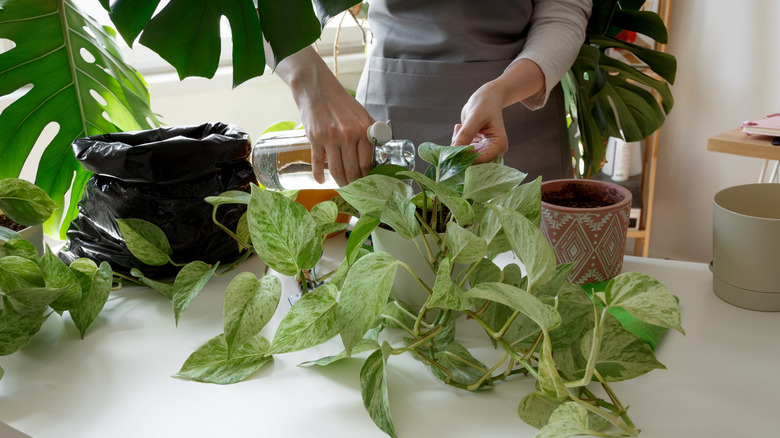Don't Sleep On The Benefits Of Putting A Pothos Plant Near Your Bed At Night
Even a tiny splash of green can change the vibe of a room. The corners look softer, and the space somehow feels more alive. Most plants can accomplish this, but a few go further. Golden pothos (Epipremnum aureum), also known as Devil's Ivy, for example, delivers tangible perks. Native to the Solomon Islands, it's the kind of plant that'll drape elegantly from a shelf or snake its way up a trellis without much fuss. In various cultures, it's also linked to prosperity. Feng Shui enthusiasts claim that placing golden pothos strategically in your home can attract wealth and positivity. Yet its most impressive trick has nothing to do with appearances or lucky legends. This plant actively purifies the air you breathe. As such, every inhale you take at night next to a golden pothos is filtered naturally.
And don't just take our word for it. The benefits of this houseplant for indoor air quality are backed by science. NASA's study on indoor plants revealed that golden pothos can effectively mop up airborne nasties like formaldehyde and volatile organic compounds. Harvard researchers took it a step further. They showed that in real-life environments, golden pothos removed 74% of total VOCs and 68% of odors. So when you tuck in at night, having a pothos nearby means improving the quality of your air, and by extension, your sleep and your health.
How to care for your pothos so it thrives indoors
If you're inviting a pothos to live right beside your bed, then set it up for success from day one. To keep your pothos plant happy and healthy, start with the soil. Choose something well-draining that doesn't cling to water. Pothos roots want to drink, not drown, and they're happiest in a mildly acidic pH, ideally between 6.1 and 6.5. It's just the right middle ground where its roots can absorb nutrients without a fight. And when you pot it, go for a container that gives roots an extra two inches of room on all sides, with drainage holes that actually drain.
Now, since this plant is about to become your nighttime roommate, place it on the bedside that gets the soft indirect sunlight from a nearby window. Pothos don't need sunbeams blasting at them, but they do need gentle brightness to keep their leaves lush. Keep the room within 65 to 75 degrees Fahrenheit, because this range mimics the warm tropical climate they're native to. If you like to run a humidifier at night, go ahead; pothos plants love humidity. But when it comes to watering, go easy. Wait until the top layer of soil is dry before reaching for the watering can.
Every few months, give it a little cut right below a node close to the main stem so it can redirect its energy into producing a bushier plant. And if you ever want to multiply your little bedside companion, you can propagate pothos to get endless greenery for your home. Pop the piece you trimmed in water and let it hang out. In a month or two, you'll see roots forming. Please note that while pothos can improve your health, they are toxic to cats and dogs if ingested.

